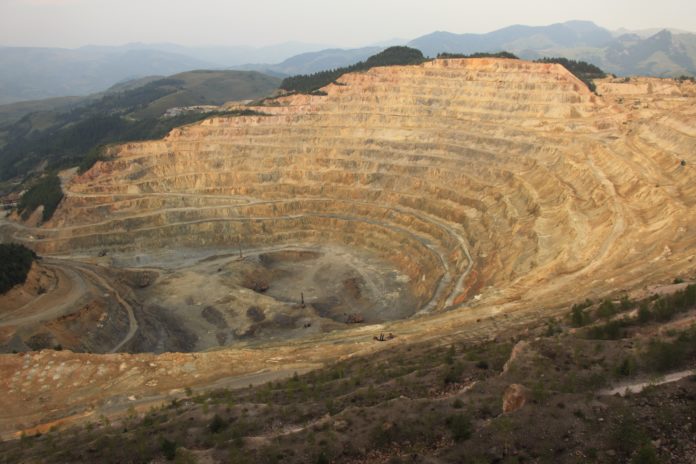
Our media department at Anonymous have touched on the issues surrounding the elusive trade agreements TTIP, TTP and TISA, and the dubious notion of the ‘free-trade’ agreements for Pacific Rim countries. In a recent article the legal and economic systems were touched on; the ISDS within these systems, and the irreversible consequences of them.
ISDS, or Investor-State Dispute Settlement is the Devil’s clause found in many trade agreements, with its introduction into the three T’s agreements being a stand off point for many countries. It is the text providing the grounds for a corporation to sue governments who “act in a way that harms their interest.”
The ISDS has been refuted by many EU countries over the years; but the poorer countries – who financially can’t compete against big corporations suing them – are often the ones suffering in silence.
Case study: El Salvador vs. Pacific Rim.
El Salvador has been caught up in a US$301 million lawsuit over its sovereign decision to block a mining project headed by Canadian (now known as OceanaGold since a 2013 buyout) company aptly named Pacific Rim. The choice to block the mining project came from the people and the government trying to protect what little was left (3 percent) of their clean water supply damaged from past mining ventures.
Mining companies have stripped the health of the El Salvador water supply – something that OceanaGold doesn’t dispute in a recent interview I had with their representative, Sam Pazuki. A staggering 97 percent is currently unsuitable for human consumption; with Pacific Rim/Oceana Gold mining activity implied to deplete the last of it. The San Sebastián River was polluted with a “distinctive orange color, for almost a decade of unchecked gold mining projects,” reports Argentinian Dependent. In 2008 then-President Antonio Saca issued temporary bans on all new mining permits.
The lawsuit followed in 2009.
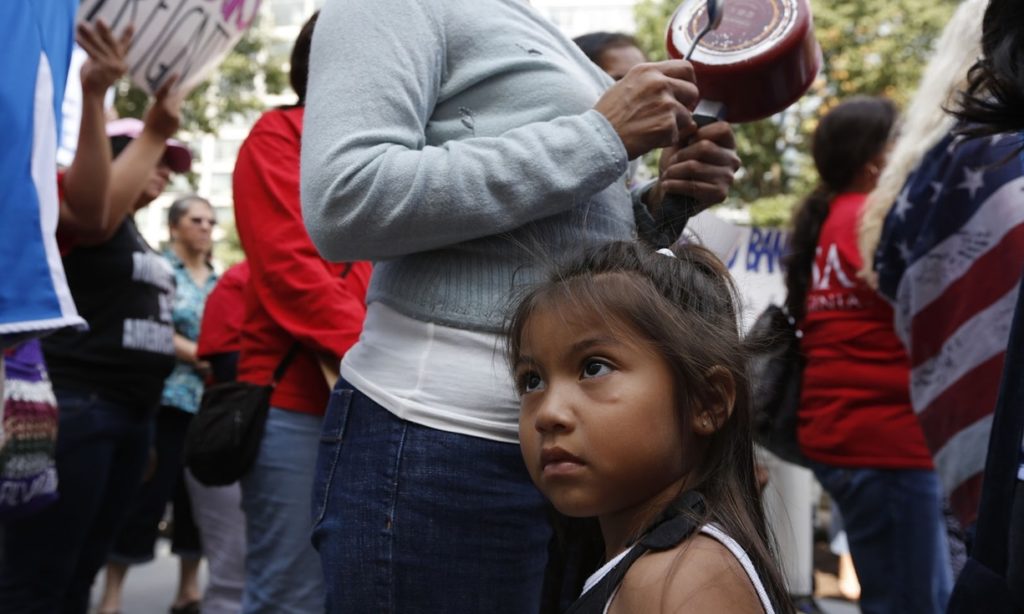
The lawsuit has cost 2.6 million to date, the equivalent to the government’s 2013 environment and natural resources spending. In GDP terms, this equates to roughly 2 percent, in order to secure their water supply because of ISDS law.
During my interview with OceanaGold Mining I asked if the implementation of ISDS could benefit Joe Citizen while safeguarding a corporation. The company couldn’t comment on the procedures involved with the continuing El Salvador case, but suggested the ICSID is a “highly respected legal institution established in 1966,” Pazuki stated, with no mention of the citizens’ protection.
“It is a member of the World Bank Group and is overseen by independent arbitrators who are widely considered to be experts in their field. Tribunals such as the ICSID offer protection to both small and large investors and encourage international investment.”

Contrasting OceanaGold’s glowing description of the ICSID, in 2012 Oxfam America released a damning statement against the ICSID for ruling in favor of Pacific Rim’s lawsuit.
“We are very disappointed by (ICSID’s) decision to rule against El Salvador. It goes against the views the Salvadoran people who are overwhelmingly against mining,” said Keith Slack, manager of Oxfam America’s oil, gas and mining program. “We are concerned that the continued presence of Pacific Rim in El Salvador will contribute to further human rights abuses. We urge Pacific Rim not to pursue this case and to listen to the voice of the Salvadoran people.”
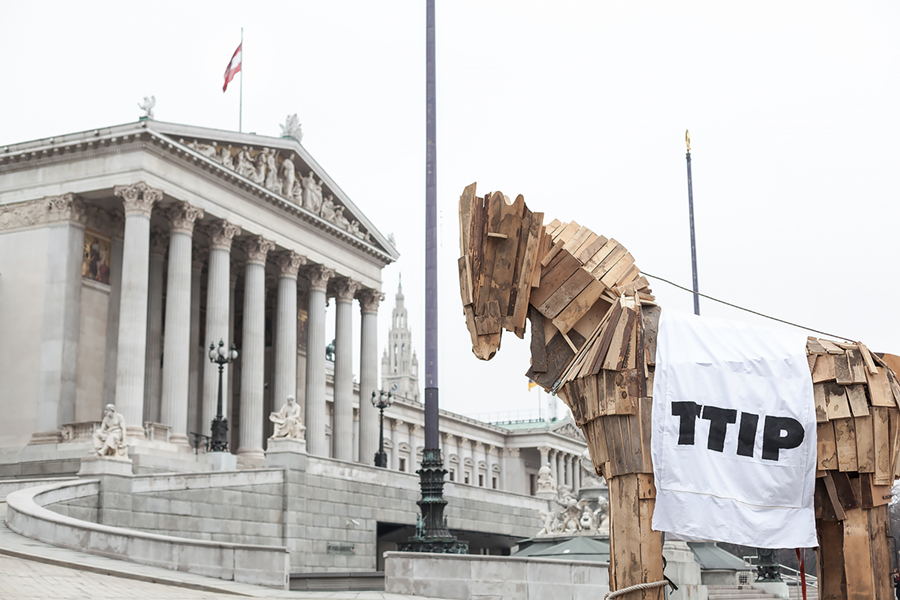
The hearing, which commenced behind closed doors in 2014, has continued on throughout 2015, with an official ruling now not expected until this year. Global Canadian company OceanaGold, who has a corporate office in Melbourne, Australia; and Canada; is suing the El Salvador government for almost half their annual budget – a reported $300 million. I requested a formal interview with the company’s Melbourne headquarters only to be directed to the international representative with strict back and forth email correspondence only.
I prompted questions about the nature of ISDS and the closed door policy it perpetuates. Was there room for healthy debate in the public arena? Are people over reacting because they’re ill informed? What about public interests? I gave them the opportunity to provide a positive spin on ISDS:
AW: Many people fear that the political/legal implications for ISDS are quite considerable – that they will trickle down into the citizen population economically and environmentally. Can there be positive implications, too? How so?
All of which went unanswered.
What This Means for the Future
The ISDS that is said to form much of the content in the Three T’s ‘free trade’ agreements has caused much dispute, particularly in the EU where they have sought to remove its terminology from TTIP – led by the Germans. Be what it may, ISDS has spooked many of the wealthier nations. What hope does a rising economy like El Salvador have?
Though comment wasn’t given on ISDS specifically during my OceanaGold interview, it was pointed out OceanaGold is attempting to resolve problems caused by past mining endeavors.
“[In the Philippines] artisanal small-scale mining has devastated the environment… We believe this is a global issue and in the absence of responsible mining unfortunately small scale, artisanal mining can run rampant.”
They hint at El Salvador being a reflection of work they did with their Pilipino Didipio mine – raising a Class “D” river (“biologically dead”) to Class “C,” through their innovation. But by own admission, OceanaGold use the recycled water in the Philippines, which must be maintained at an acceptable level.
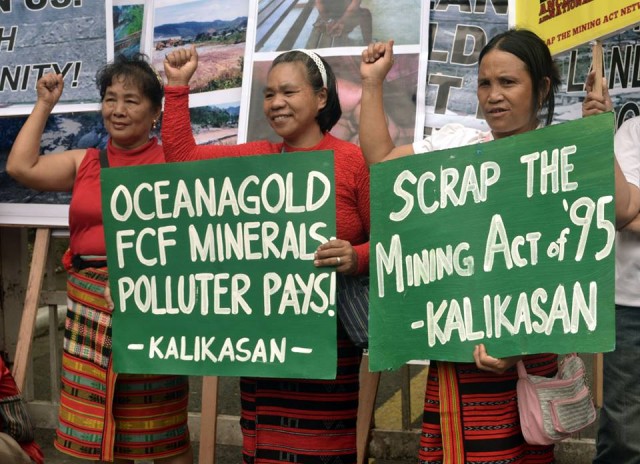
The double-edged sword that stabs…
Are OceanaGold’s intentions to benefit indigenous communities in countries they mine commendable?
“We have brought about awareness in the Philippines and El Salvador on mosquito borne illnesses and educated them on how to protect from these illness,” Pazuki says.
“…On many natural disasters in the Philippines, we have dispatched our emergency response teams to affected areas to assist government agency and the military with the rescue and recovery efforts.”
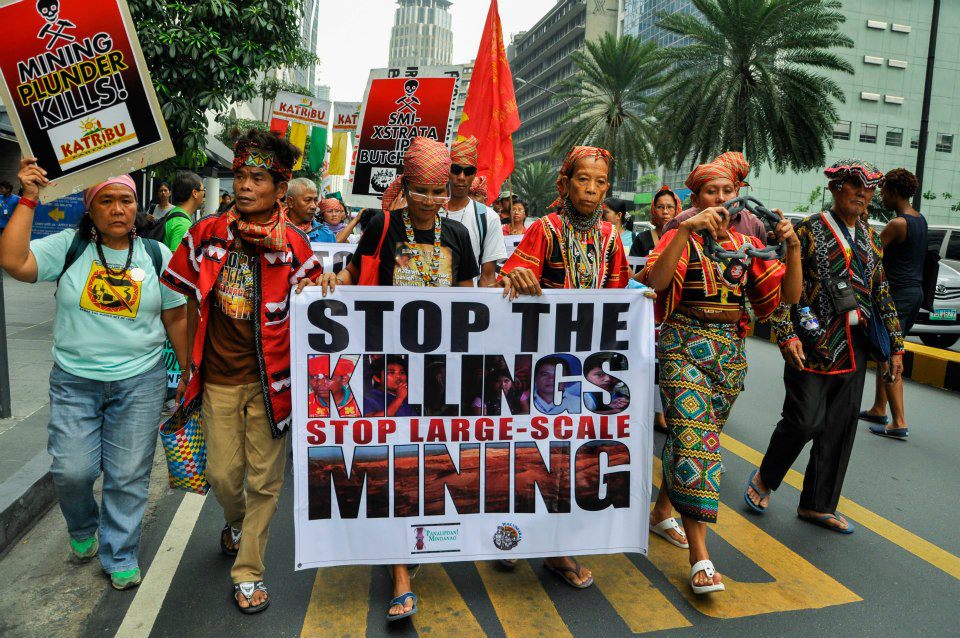
Contrary to the human rights report released by the U.S. Department of State in 2012 stating “corruption was endemic,” Pazuki defends the mining company’s reputation. “…If our human rights performance was inadequate then we would not be operating successfully in the Philippines…
“We challenge anyone questioning our human rights programs and track record. We stand 100% behind it.”
In the case of El Salvador’s rights, only the arbitration’s conclusion will tell the final stage for the nation’s sovereignty, and perhaps for the rest of the Pacific Rim economies.
This article (El Salvador vs. Mining Company to Save Water Supply: OceanaGold Interview) is a free and open source. You have permission to republish this article under a Creative Commons license with attribution to the author AnonWatcher and AnonHQ.com.




